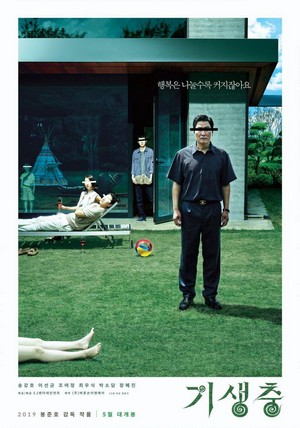
Gisaengchung (2019)
Parasite / 기생충

Raiting: ![]() 8,5 /10
8,5 /10
Genre: Drama
Director: Bong Joon Ho
Stars: Song Kang-ho, Lee Sun-kyun and Cho Yeo-jeong
Country: South Korea
Release date: 30 May 2019
Length: 132 minutes


Raiting: ![]() 8,5 /10
8,5 /10
Genre: Drama
Director: Bong Joon Ho
Stars: Song Kang-ho, Lee Sun-kyun and Cho Yeo-jeong
Country: South Korea
Release date: 30 May 2019
Length: 132 minutes